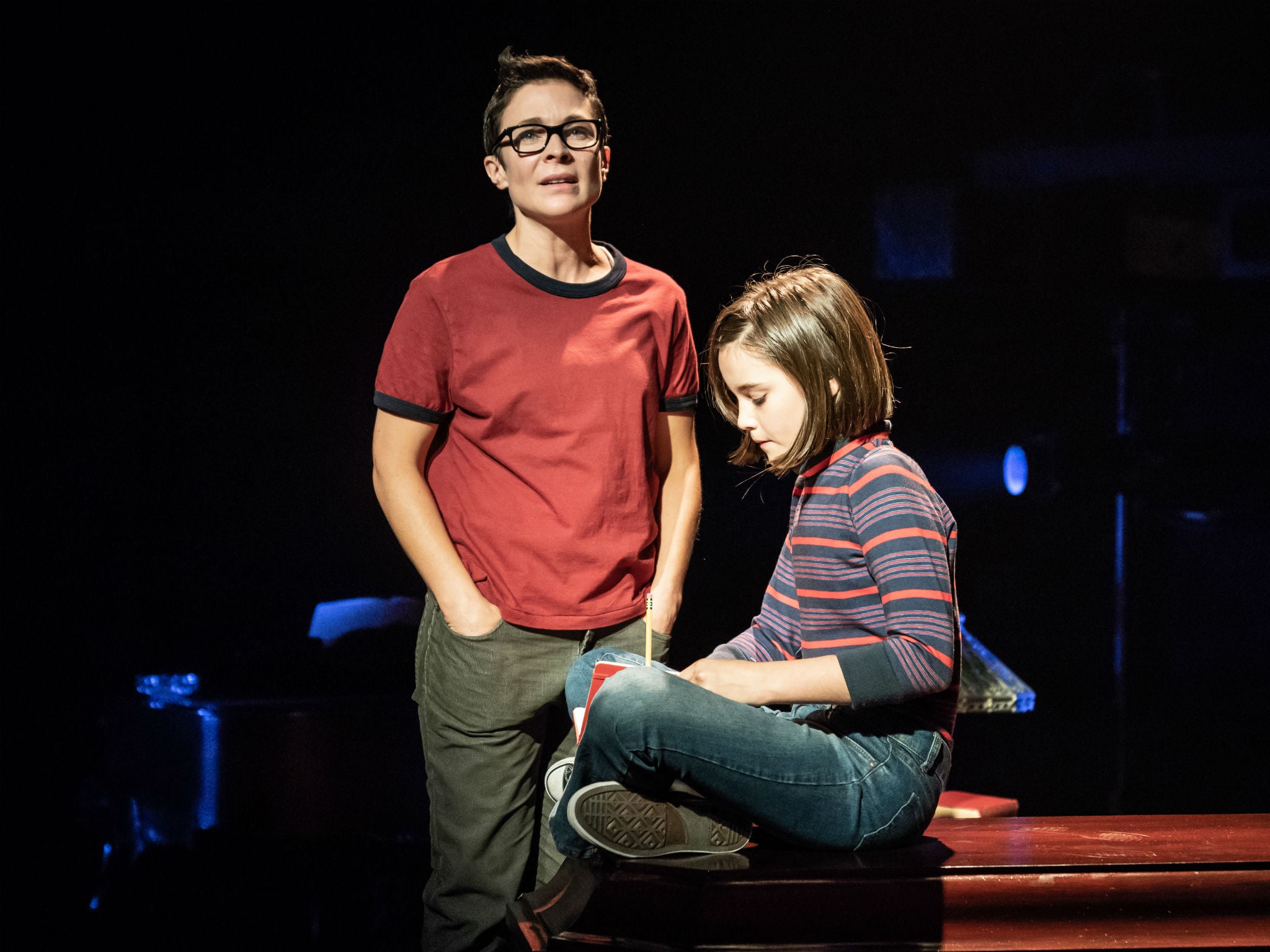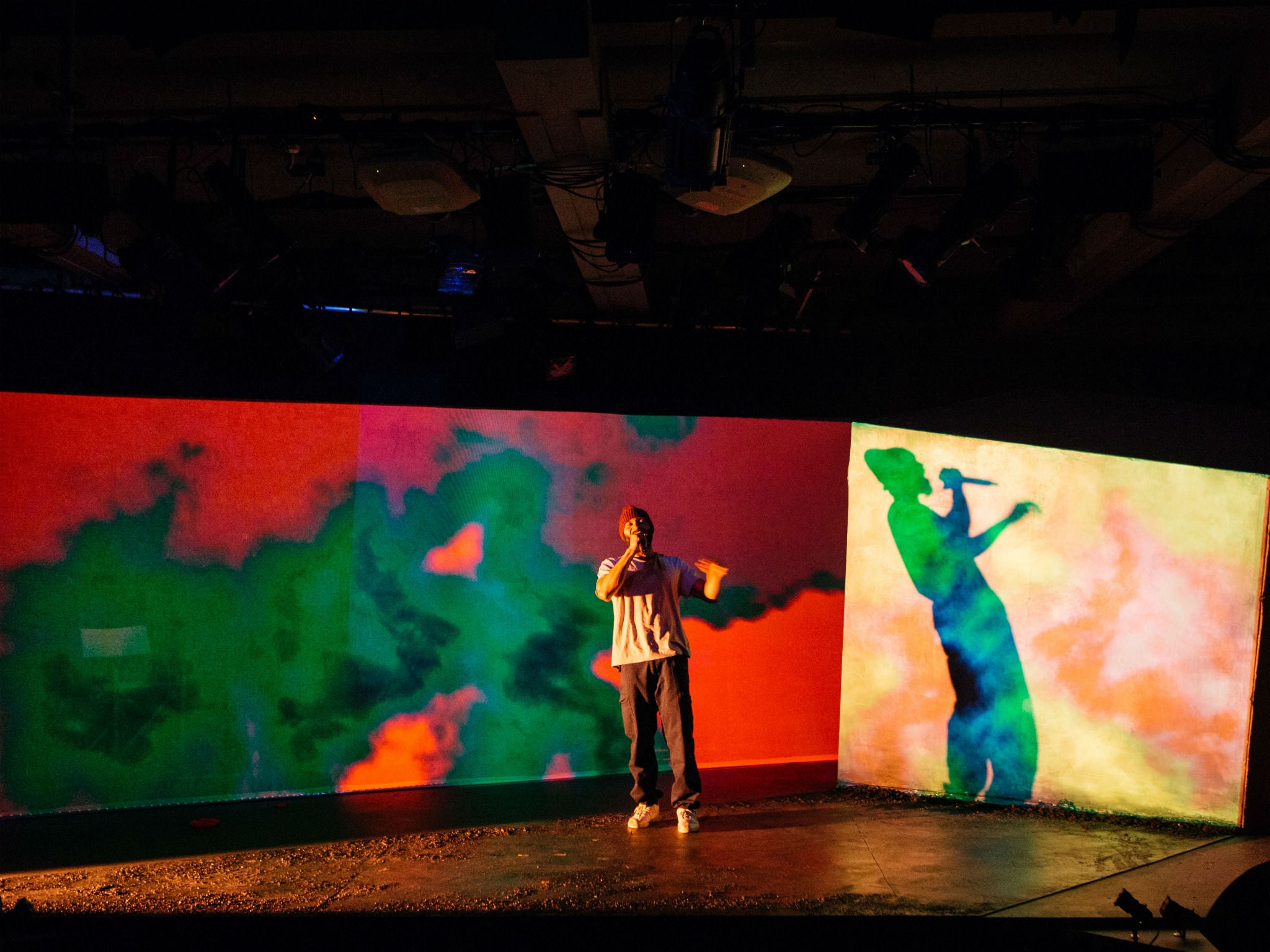From Hamilton to Sylvia: The new wave of woke musicals discussing race, gender, sexuality and identity
Hamilton, Fun Home, Suffrageddon, Sylvia, Everybody’s Talking About Jamie, and Misty aren’t traditional musicals – their scores are hip hop, pop, R&B, soul, grime, garage and funk

Your support helps us to tell the story
From reproductive rights to climate change to Big Tech, The Independent is on the ground when the story is developing. Whether it's investigating the financials of Elon Musk's pro-Trump PAC or producing our latest documentary, 'The A Word', which shines a light on the American women fighting for reproductive rights, we know how important it is to parse out the facts from the messaging.
At such a critical moment in US history, we need reporters on the ground. Your donation allows us to keep sending journalists to speak to both sides of the story.
The Independent is trusted by Americans across the entire political spectrum. And unlike many other quality news outlets, we choose not to lock Americans out of our reporting and analysis with paywalls. We believe quality journalism should be available to everyone, paid for by those who can afford it.
Your support makes all the difference.Hamilton, it seems, was just the beginning. With its hip hop score and its colour-conscious casting, Lin-Manuel Miranda’s all conquering hit was revolutionary.
But look beyond the founding father of the woke musical, and it becomes clear that things are shifting more widely in the world of musical theatre, and particularly in the UK. Suddenly there’s a wave of shows that are at the forefront of conversations around race, gender, sexuality and identity. Shows that lean less on the traditions and conventions of musical theatre and, in doing so, are completely reinvigorating the form.
As actor and writer Arinzé Kene puts it: “These are trying times. Audiences are ready for more. They’re ready to be challenged on politics, on gender, on race. And musicals are being braver. It’s exciting.”
Right now there are two hip hop musicals about the suffragettes – one in development, the other about to open in London. Drag queen musical Everybody’s Talking About Jamie is entering its second year in the West End and being turned into a film. Fun Home, which put queer women centre stage, recently finished a run at the Young Vic and the West End transfer of Kene’s own music-infused exploration of race on stage, Misty, has just opened.
True, The Phantom of the Opera is still dangling from a chandelier somewhere in the West End, and still playing to packed houses. But a creepy dude in a mask is not what British musicals are anymore. Musical theatre, in this country, has woken up.
Some of this awakening is basic stuff, and long overdue: having an actual east Asian actor play the King of Siam in The King and I, casting a Hispanic actor as Maria in West Side Story. That’s not enough for choreographer Kate Prince, who founded the renowned dance company ZooNation in 2002.

Her first big hit was 2008’s Into the Hoods, a dance retelling of Stephen Sondheim’s musical Into the Woods set to hip hop. In effect, it was doing what Hamilton has done, but long before.
Prince’s latest piece is Sylvia, a hip hop musical about the life of Sylvia Pankhurst. There were the usual sputters of “PC gone mad” when it was announced that Beverley Knight would play Sylvia’s mother Emmeline Pankhurst. “But it’s not a documentary,” Prince says, “it’s a piece of art. It’s about singing and dancing, and so I’m going to choose the best people for that material.”
“I do feel strongly about it. We’re not addressing an even playing field here. If there needs to be a long period of time where we ask more black and Asian actors to take leading roles, then why not. We have to redress that imbalance.”
So Sylvia has Lady Jennie Churchill, Winston’s mum, as a garage MC. For Prince, “the style of it suits the magnitude of the character and the power and influence she had over her son. And when a garage track comes in it makes a younger audience sit up and listen in a way it wouldn’t if it was a piece of classical music.”
Deborah Frances-White, comedian and host of The Guilty Feminist podcast, thinks similarly. She has commissioned Suffrageddon, an extract of which had an outing at the London Palladium last year. Rapper Oracy, grime artist RoxXxan and composer Mark Hodges are now extending it to a full length show.
While researching, Frances-White learned that “many of the Suffragettes were racist. We absolutely do need to celebrate 100 years since some women were given the vote, but I wanted very much to include women of colour in that story. So I thought, what about putting the narrative into the hands of women of colour?”
By casting colour-consciously, like Sylvia, Frances-White hopes that contemporary resonances about marginalisation and oppression will be more visible, which is what she found when she saw Hamilton.
“The truth is, Emmeline Pankhurst would be the equivalent of Nigella Lawson today, but if you put Nigella Lawson in the role we can’t equate it. We can’t understand the oppression in the same way.”
It’s not just about casting, though. This new wave of British musicals is also completely alive to conversations around identity politics, reflecting and enlarging these themes on stage.
A few years ago director Jonathan Butterell stumbled across a documentary on BBC Three called Jamie: Drag Queen at 16. The programme followed a boy from County Durham as he tried to persuade his school to let him attend prom in a dress.

That story is now a West End musical, set to a pop score by writer Tom MacRae and Dan Gillespie Sells, frontman of the band The Feeling.
“The intent wasn’t about this boy being gay or wanting to be a drag queen,” Butterell says. “It was about a 16-year-old-boy looking for his place in the world. We were determined that it wasn’t going to be a coming out story and that Jamie wasn’t going to be a victim.”
That’s what makes Jamie and its ilk feel like a new wave. They’re beyond coming out stories now – the conversations have moved on. Take Jeanine Tesori and Lisa Kron’s musical Fun Home, an American import based on Alison Bechdel’s autobiographical graphic novel. While it has a coming out story at its heart, the show is about so much more than that.
Actor and singer Kaisa Hammarlund, who played Alison Bechdel in the London production, says: “We have young queer girls at stage door every night, crying their eyes out, seeing themselves represented. And I’m really proud to be part of something that allows their stories to be heard.”
For Butterell, “it’s the job of artists to reflect the conversations that are being had at that time. The world’s changed so fast since I saw the documentary. Conversations around gender identity were just beginning.”
Kene thinks people are “more informed and wiser” about gender and sexuality now than when he was growing up, and that it’s due to the arts. “Not a year goes by where we don’t get a story exploring what it is to be gay or from the trans community. It’s helping everyone. It’s helping socialise the nation.”
So what is it about musicals that makes them such a powerful medium for these conversations? Hammarlund suggests that it’s “an easy way into people’s hearts”. So does Kene. Although he’s starred in several musicals, including The Lion King and last year’s Bob Dylan musical Girl From the North Country, Misty marks the first time he’s used music in his writing.
“We’re able to grapple with really tough issues when we use music. Some scenes I’d struggled to write – that sounded too preachy or on the nose politically – when you change that scene into a song, all of a sudden it works.”
Guilty Feminist live shows, Frances-White explains, always end with the audience standing up and singing “I Will Survive”. “I can’t, through comedy, make them feel the way they do when singing and dancing to ‘I Will Survive’.”
But Hamilton, Fun Home, Suffrageddon, Sylvia, Jamie, Misty – they don’t sound like “traditional” musicals. Their scores are hip hop, pop, R&B, soul, grime, garage and funk. Kene isn’t even sure if Misty is a musical at all. And, for the most part, their creators aren’t part of the musical theatre world.
Butterell had worked in musical theatre, but writers Dan Gillespie Sells and Tom MacRae hadn’t. In fact, Butterell chose them precisely for that reason. What he wanted was a pop sound, the sort of music that characters within the show – living around an estate in Sheffield – would be listening to in their homes.
For Prince, who made her name as a choreographer of dance shows, hip hop was essential. “It’s also the music I like to listen to. I don’t think there should be rules as to what musical theatre should sound like.”
Maybe that’s why these shows are proving to be so popular. They’re refreshing the form in so many different ways. Kene likens it to the argument that had been prevalent in the film industry: namely that blockbusters with black leads wouldn’t sell. “We know that’s not true. Look at Get Out, Black Panther, Star Wars. It’s the same for theatre – when it comes to the work written and performed by black people – and for musical theatre.”
In other words, the audiences are out there, it’s just that the gatekeepers weren’t allowing work to be made for those audiences. “After Misty, people are saying ‘do you know how long I’ve been waiting for something like this?’”
And Butterell argues that the importance of this new wave of work isn’t just about representing previously neglected communities: “The more diverse the stories, the more people we’re talking to, the more we find in common.”
What we have in common is that everyone, really, just wants a bit of dignity and recognition. And that desire is not contingent on skin colour, sexuality, gender, age, class. “Human experience is not one thing,” says Frances-White. “We’re all having to struggle in our own way. But whoever we are we can be part of the problem or we can be part of the solution.”
These shows and many others besides are trying to be part of the solution. And in doing so they’re promising a thrilling, blazing future for musical theatre in the UK.
Sylvia is at The Old Vic until 22 September www.oldvictheatre.com; Misty is at Trafalgar Studios until 20 October
Join our commenting forum
Join thought-provoking conversations, follow other Independent readers and see their replies
Comments